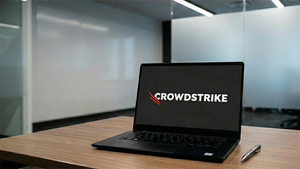PharmaCyte Biotech, Inc. (NASDAQ: PMCB), a biotechnology company focused on developing cellular therapies for cancer and diabetes using its signature live-cell encapsulation technology, Cell-in-a-Box®, announced today that it has initiated the first in a series of studies to test the ability of its pancreatic cancer therapy to treat malignant ascites. The initiation of this first study was made possible after PharmaCyte’s successful production of a Master Cell Bank as well as the demonstration that the Master Cell Bank is adventitious agent free.
In PharmaCyte’s initial study, it aims to establish a mouse model of malignant ascites to serve as a basis for further CypCaps plus ifosfamide efficacy studies. This study involves inoculating the peritoneal space of genetically susceptible mice with radiolabelled mouse colon carcinoma cells. Study parameters include survival, clinical signs, body weight, assessment of tumor spread using fluorescence imaging and indexing of total tumor volume.
The planned series of studies will build on previous data obtained by Prof. Matthias Löhr of the Karolinska Institute in Stockholm, Sweden, and his colleagues that showed PharmaCyte’s treatment for pancreatic cancer can slow the production and accumulation of malignant ascites. Heidelberg Pharma Research, a leading German biotechnology company focused on cancer therapies, will conduct the study.
PharmaCyte’s Chief Executive Officer, Kenneth L. Waggoner, said, “The expansion of our oncology program is continuing with the pursuit of a treatment for malignant ascites. This patient population is dealing with advanced cancer, and malignant ascites only compounds the problems these patients must endure at a very difficult time. The establishment of a reliable malignant ascites animal model is a critical step on the path to create a first-ever treatment for malignant ascites and represents our desire to address unmet medical needs and the patient’s quality of life.”
Ascitic fluid is normally produced in the peritoneum, a sheet of tissue that covers the organs in the abdomen; however, the presence of cancer can cause the peritoneum to produce too much ascitic fluid when cancer cells irritate the peritoneum, which causes the abdomen to swell as fluid accumulates. This is known as malignant ascites. It is more likely to develop in patients who have ovarian, uterine, cervical, colorectal, stomach, pancreatic, breast and liver cancers. In most patients, development of malignant ascites is a sign of advanced disease and poor prognosis.
Malignant ascites can result in impairment to the quality of life of a cancer patient. In addition to abdominal distention, pain and difficulty breathing, it may also cause nausea, vomiting, early satiety, lower extremity edema, weight gain and reduced mobility. These symptoms can interfere with a patient’s ability to eat, to walk and to perform daily activities. They also reduce a patient’s ability to withstand anti-cancer therapies, potentially reducing survival.
As a supportive or palliative measure, malignant ascites can be drained by paracentesis, percutaneously implanted catheters, peritoneal ports or peritoneovenous shunts. These treatments are invasive, can be painful and are expensive. PharmaCyte expects its treatment to offer cancer patients a therapy that slows down or eliminates the production and accumulation of malignant ascites fluid. There is currently no such treatment on the market.
To learn more about PharmaCyte’s pancreatic cancer treatment and how it works inside the body to treat locally advanced inoperable pancreatic cancer, we encourage you to watch the company’s documentary video complete with medical animations at: https://www.PharmaCyte.com/Cancer
About PharmaCyte Biotech
PharmaCyte Biotech, Inc. is a biotechnology company developing cellular therapies for cancer and diabetes based upon a proprietary cellulose-based live cell encapsulation technology known as “Cell-in-a-Box®.” This technology is being used as a platform upon which therapies for several types of cancer and diabetes are being developed.
PharmaCyte’s therapy for cancer involves encapsulating genetically engineered human cells that convert an inactive chemotherapy drug into its active or “cancer-killing” form. For pancreatic cancer, these encapsulated cells are implanted in the blood supply to the patient’s tumor as close as possible to the site of the tumor. Once implanted, a chemotherapy drug that is normally activated in the liver (ifosfamide) is given intravenously at one-third the normal dose. The ifosfamide is carried by the circulatory system to where the encapsulated cells have been implanted. When the ifosfamide flows through pores in the capsules, the live cells inside act as a “bio-artificial liver” and activate the chemotherapy drug at the site of the cancer. This “targeted chemotherapy” has proven effective and safe to use in past clinical trials and we believe results in little to no treatment related side effects.
PharmaCyte’s therapy for Type 1 diabetes and insulin-dependent Type 2 diabetes involves encapsulating a human cell line that has been genetically engineered to produce and release insulin in response to the levels of blood sugar in the human body. The encapsulation of the cell line will be done using the Cell-in-a-Box® technology. Once the encapsulated cells are implanted in a diabetic patient, we anticipate that they will function as a “bio-artificial pancreas” for purposes of insulin production.
Safe Harbor
This press release may contain forward-looking statements within the meaning of the Private Securities Litigation Reform Act of 1995 that express the current beliefs and expectations of the management of PharmaCyte. Any statements contained herein that do not describe historical facts are forward-looking statements that are subject to risks and uncertainties that could cause actual results, performance and achievements to differ materially from those discussed in such forward-looking statements. Factors that could affect our actual results include our ability to raise the necessary capital to fund our operations and to find partners to supplement our capabilities and resources, our ability to satisfactorily address the issues raised by the FDA in order to have the clinical hold on our IND removed, as well as such other factors that are included in the periodic reports on Form 10-K and Form 10-Q that we file with the U.S. Securities and Exchange Commission. These forward- looking statements are made only as of the date hereof, and we undertake no obligation to update or revise the forward-looking statements, except as otherwise required by law, whether as a result of new information, future events or otherwise.
More information about PharmaCyte Biotech can be found at www.PharmaCyte.com. Information may also be obtained by contacting PharmaCyte’s Investor Relations Department.
View source version on businesswire.com: https://www.businesswire.com/news/home/20220523005401/en/
Contacts
Dr. Gerald W. Crabtree
Investor Relations:
PharmaCyte Biotech, Inc.
Investor Relations Department
Telephone: 917.595.2856
Email: InvestorRelations@PharmaCyte.com





